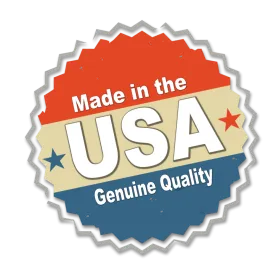Goods advertised as “Made in the USA” (MUSA) are potential money-makers for manufacturers tapping into the market of consumers who seek home-grown products. In recent years, however, the Federal Trade Commission (FTC) has investigated companies that deceptively marketed their goods as American-made, sending out warning letters, closing out investigations of companies that quickly change their advertising, and initiating more forceful enforcement action against advertisers who cannot substantiate MUSA claims. The FTC now has an additional legal basis for these investigations: a new rule that requires business making unqualified MUSA claims on their labels to prove their products are “all or virtually all” sourced and manufactured in America – or potentially pay hefty fines.
The Made in USA Labeling Rule (The Rule) codifies the Commission’s Decisions and Orders and its Enforcement Policy Statement on U.S. Origin Claims. It applies to all labels, whether they appear on product packaging or online, and includes mail order catalogs or mail order promotional materials that include a seal, mark, tag, or stamp declaring goods are “Made in the United States.”
Under the Rule, companies are barred from making unqualified MUSA claims unless they can establish that:
-
Final assembly or processing of the product occurs in the United States;
-
Significant processing that goes into the product occurs in the United States; and
-
All or virtually all ingredients or components of the product are made and sourced in the United States.
The Rule provides an exemption for companies that can show their unqualified MUA claims are not deceptive. This isn’t a new concept. However, it also empowers the FTC to pursue civil penalties of up to $43,280 per violation against companies that make false MUSA claims.
The vote to approve the Final Rule was 3-2. Voting in favor, Commissioners Rohit Chopra, Rebecca Kelly Slaughter, and Chair Lina Khan issued a statement praising the action, which is consistent with a 1994 statute codified in 15 U.S.C. § 45(a). The Rule reflects longstanding guidance and legal precedent without imposing new obligations on businesses. The three Commissioners applauded the “broader range of remedies including the ability to seek redress, damages, penalties, and other relief from those who lie about a Made in USA label” authorized by the Rule. Commissioner Christine S. Wilson dissented, saying that the Rule is overbroad and “could be read to cover all advertising, not just labeling.” She argued that the rule thereby exceeds the FTC’s statutory authority. She added: “The Supreme Court’s recent decision in AMG has eliminated the FTC’s ability to seek equitable monetary relief under Section 13(b) of the FTC Act to compensate consumers. Thus, the temptation to test the limits of our remaining sources of authority is strong.”
In addition to its authority under the Rule, the FTC will continue to pursue deceptive MUSA advertising claims via its authority under Section 5 of the FTC Act.
One thing has been clear across several different administrations: false MUSA claims are a concern to regulators and will continue to garner enforcement attention. Companies that wish to label and/or advertise products as U.S.-made should make sure they understand the Rule as well as advertising basics, and confirm that they can substantiate express or implied MUSA claims on packaging, labeling, and advertising. False claims on labels could trigger civil penalties.





 />i
/>i

